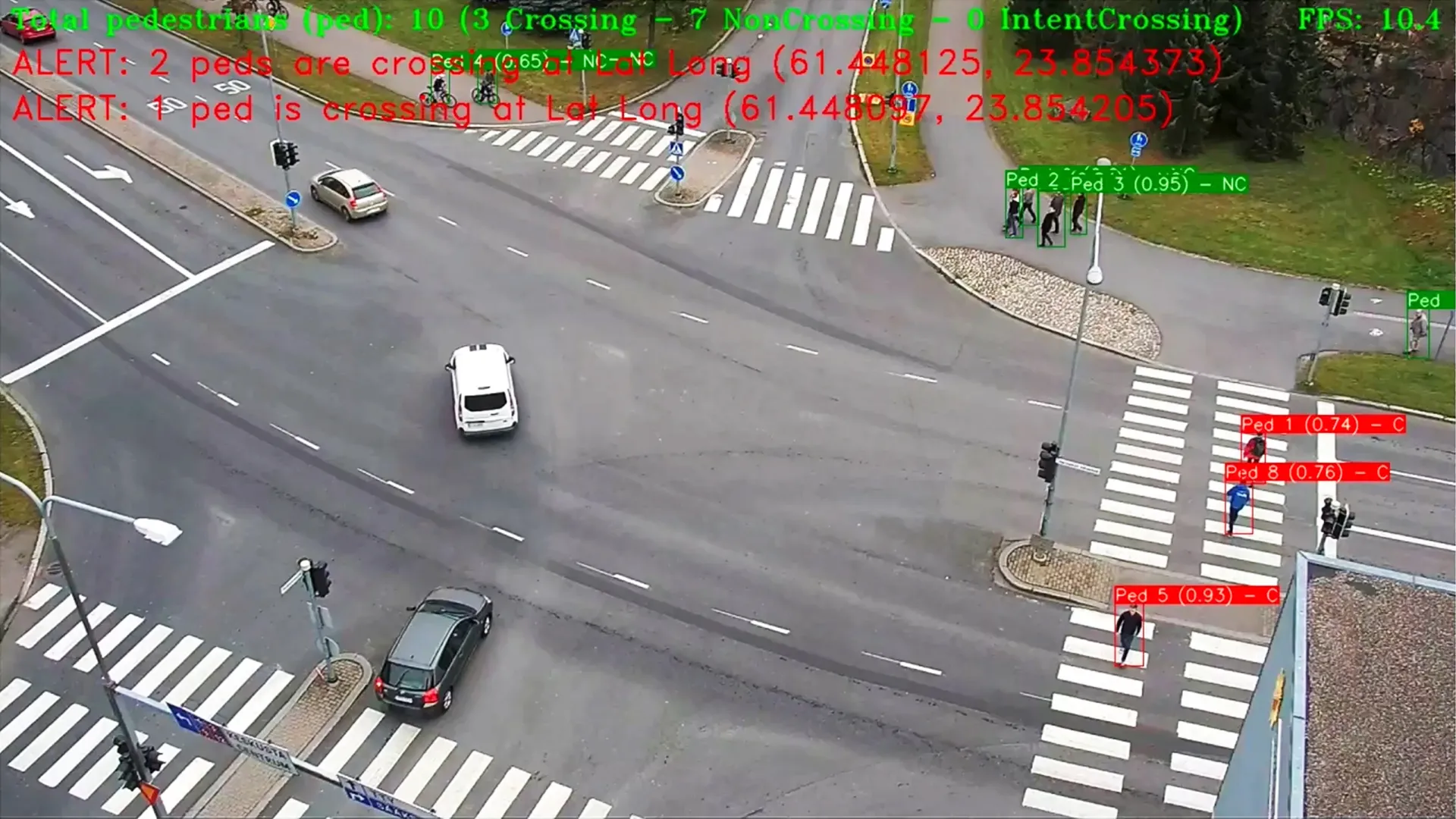
The software company says the solution utilises artificial intelligence (AI) and Internet of Things technology to automatically detect when a pedestrian is planning to cross the street at an intersection.
In Tampere, an intersection traffic camera feed was connected to a cloud-based AI system which monitors vehicles and pedestrians. The system sends an alert once its algorithms detect a pedestrian beginning to cross the street. This alert can be relayed to other connected systems and could be relayed directly to vehicles to alert drivers in the future, Tieto adds.
Pekka Stenman, traffic engineer at the City of Tampere, says: “We want to see how people move, and perhaps construct heat maps of Tampere's pedestrian flows to assist with traffic planning. Another interesting opportunity is introducing more intelligence to traffic lights by identifying and predicting people flows.”









